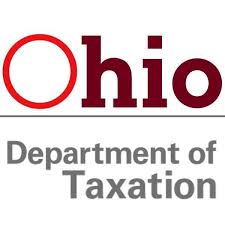Ohio Income Tax Update: Unemployment Benefits
 Last month, Sub. S.B. 18 was signed into law. This incorporates recent federal tax changes into Ohio law effective immediately.
Last month, Sub. S.B. 18 was signed into law. This incorporates recent federal tax changes into Ohio law effective immediately.
Specifically, federal tax changes related to unemployment benefits in the federal American Rescue Plan Act (ARPA) of 2021 will impact some individuals who have already filed or will soon be filing their 2020 Ohio IT 1040 and SD 100 returns (due by May 17, 2021).
Ohio taxes unemployment benefits to the extent they are included in federal adjusted gross income (AGI). Due to the ARPA, the IRS is allowing certain taxpayers to deduct up to $10,200 in unemployment benefits. Certain married taxpayers who both received unemployment benefits can each deduct up to $10,200. This deduction is factored into the calculation of a taxpayer’s federal AGI, which is the starting point for Ohio’s income tax computation.
Many taxpayers filed their 2020 federal and Ohio income tax returns and reported their unemployment benefits prior to the enactment of this deduction.
As such, ODT offers the following guidance related to the unemployment benefits deduction for tax year 2020:
- Taxpayers who previously filed federal and Ohio tax returns and are waiting for IRS to issue a refund based on the unemployment benefits deduction.
- All other taxpayers who previously filed their federal and Ohio returns prior to the enactment of this federal deduction and are waiting for the IRS to issue a refund based on the unemployment benefits deduction do not need to take any additional action on their originally filed Ohio IT 1040 return (and/or SD 100) at this time. The Department will provide further guidance when more details are available from the IRS, please continue to monitor our website.
- Taxpayers who previously filed federal and Ohio tax returns without the unemployment benefits deduction, but who are not entitled to any additional Ohio refund.
- Taxpayers who previously filed their federal and Ohio returns prior to the enactment of this federal deduction and whose Ohio income tax liability amount (IT 1040, line 10) was $0, do not need to take any additional action. Such taxpayers are not entitled to any additional Ohio refund.
- Taxpayers who are amending their federal return to claim the unemployment benefits deduction.
- Taxpayers who file an amended federal return should wait to file their amended Ohio IT 1040 (and an amended SD 100 if applicable) until the IRS has approved the requested changes.
- Please note that the IRS does not recommend filing an amended return for the adjustment at this time.
The IRS’s current guidance on the federal taxation of unemployment benefits can be found here and how they will recalculate taxes on unemployment benefits can be found here.
If you have additional questions or need assistance, please work with your Whalen Advisor.
SOURCE: Ohio Department of Taxation



 COVID-19 has changed our lives in many ways, and some of the changes have tax implications. Here is basic information about two common situations.
COVID-19 has changed our lives in many ways, and some of the changes have tax implications. Here is basic information about two common situations.